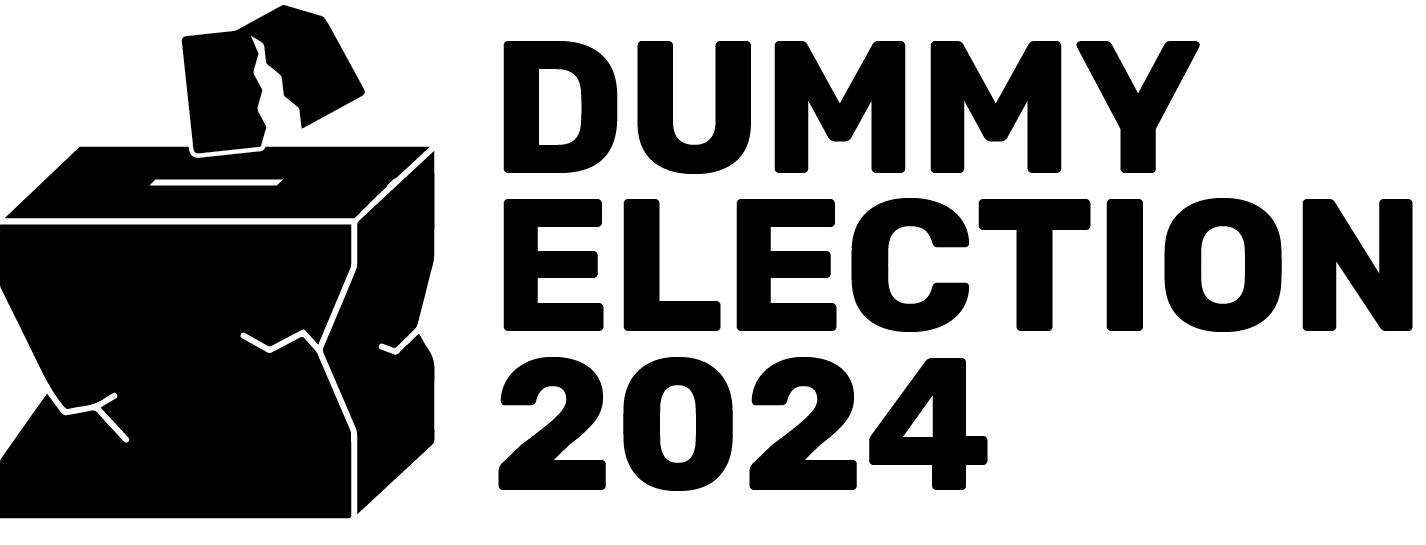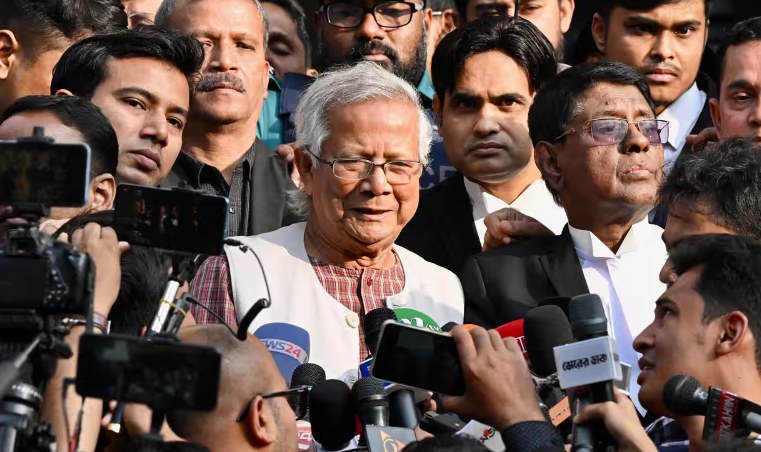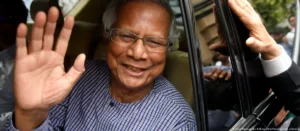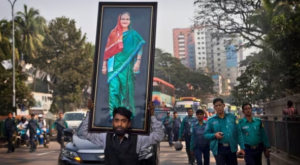Peter Beaumont and agencies
Prime minister, Sheikh Hasina, has accused 83-year-old of ‘sucking blood’ from poor people.
The Nobel peace laureate Muhammad Yunus has been convicted of violating Bangladesh’s labour laws in a trial decried by his supporters as politically motivated.
The 83-year-old, credited with lifting millions out of poverty with his microfinance bank, Grameen, has earned the enmity of Sheikh Hasina, the longtime prime minister, who has accused him of “sucking blood” from poor people.
Hasina’s administration has become increasingly firm in its crackdown on political dissent. She has made several scathing verbal attacks against Yunus, who won the peace prize in 2006 and was once seen as a political rival.
Sheikh Merina Sultana, head of Dhaka’s third labour court, found Yunus and three colleagues from Grameen Telecom guilty, sentencing each to six months in jail. All four were immediately granted bail pending appeals.
Sultana said in her verdict that 67 Grameen Telecom employees were supposed to have been made permanent and that employees’ participation and welfare funds had not been formed. She also said that following company policy, 5% of the company’s dividends were supposed to be distributed to staff.
“I have been punished for a crime that I haven’t committed,” Yunus told reporters after the hearing. “If you want to call it justice, you can.”
“This verdict is unprecedented,” said Abdullah Al Mamun, a lawyer for Yunus. “We did not get justice.”
Another of his lawyers, Khaja Tanvir, said the case was “meritless, false and ill-motivated”. He said: “The sole aim of the case is to harass and humiliate him in front of the world.”
Monday’s verdict against Yunus, who is also facing an array of other charges involving alleged corruption and fund embezzlement, came as Bangladesh prepares for a general election on 7 January. Bangladesh’s main opposition party, the Bangladesh Nationalist party (BNP), whose top leaders are either jailed or in the exile, has urged its supporters to boycott what it has called a “one-sided dummy election”. The BNP is led by the former prime minister Khaleda Zia, Hasina’s arch rival.
Yunus, an economist and social entrepreneur, was one of the early pioneers of micro-finance banking after returning to Bangladesh in the 1970s after studying in the US.
His research into the mechanisms of poverty in Bangladesh among the landless led him to conclude that a system of small loans to those without collateral via lending clubs could allow them to set up their businesses.
Yunus is facing more than 100 other charges over alleged labour law violations and alleged graft. He told reporters after one of the hearings last month that he had not profited from any of the more than 50 social business firms he had set up in Bangladesh. “They were not for my personal benefit,” Yunus said.
Shortly after winning his Nobel prize, Yunus had flirted with founding his own political party – Citizen Power – during a period of conflict between Hasina’s Awami League and the BNP, promising to end corruption.
He abandoned plans to contest elections a few months later, citing a lack of support for his new political movement. Nevertheless, the following year Hasina’s administration began a series of investigations of Yunus.
Irene Khan, a former Amnesty chief now working as a UN special rapporteur who was present at Monday’s verdict, said the conviction was “a travesty of justice”.
“A social activist and Nobel laureate who brought honour and pride to the country is being persecuted on frivolous grounds,” she said.
In August, 160 global figures, including the former US president Barack Obama and ex-UN secretary general Ban Ki-moon, published a joint letter denouncing “continuous judicial harassment” of Yunus. The signatories, including more than 100 of his fellow Nobel laureates, said they feared for his safety and freedom.
Critics accuse Bangladeshi courts of rubber-stamping decisions made by Hasina’s government.
Amnesty International accused the government of “weaponising labour laws” when Yunus went to trial in September and called for an immediate end to his “harassment”. Criminal proceedings against Yunus were “a form of political retaliation for his work and dissent”, the organisation said.
Yunus and Grameen had come under scrutiny more than a decade ago after a documentary in 2010 that alleged that misuse of Norwegian funds. They were cleared by a subsequent Norwegian investigation.
In 2011, Hasina’s administration began a review of the bank’s activities. Yunus was fired as managing director for allegedly violating government retirement regulations. He was put on trial in 2013 on charges of receiving money without government permission, including his Nobel prize award and royalties from a book.
This report was first published in The Guardian, on January 1, 2024
